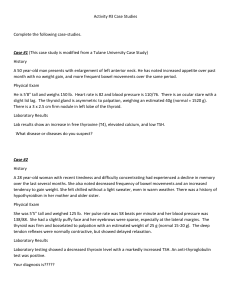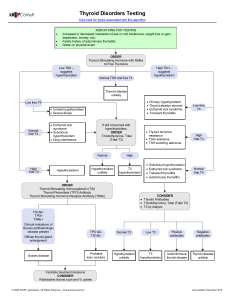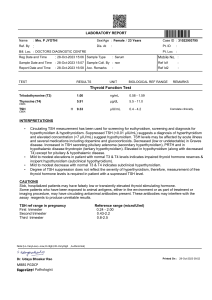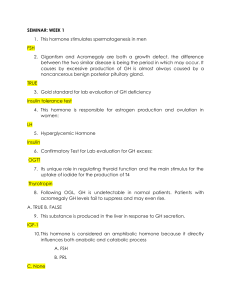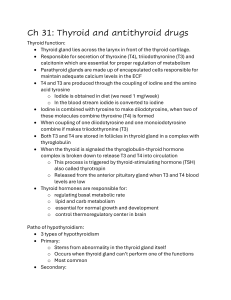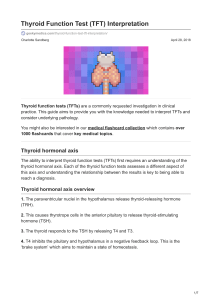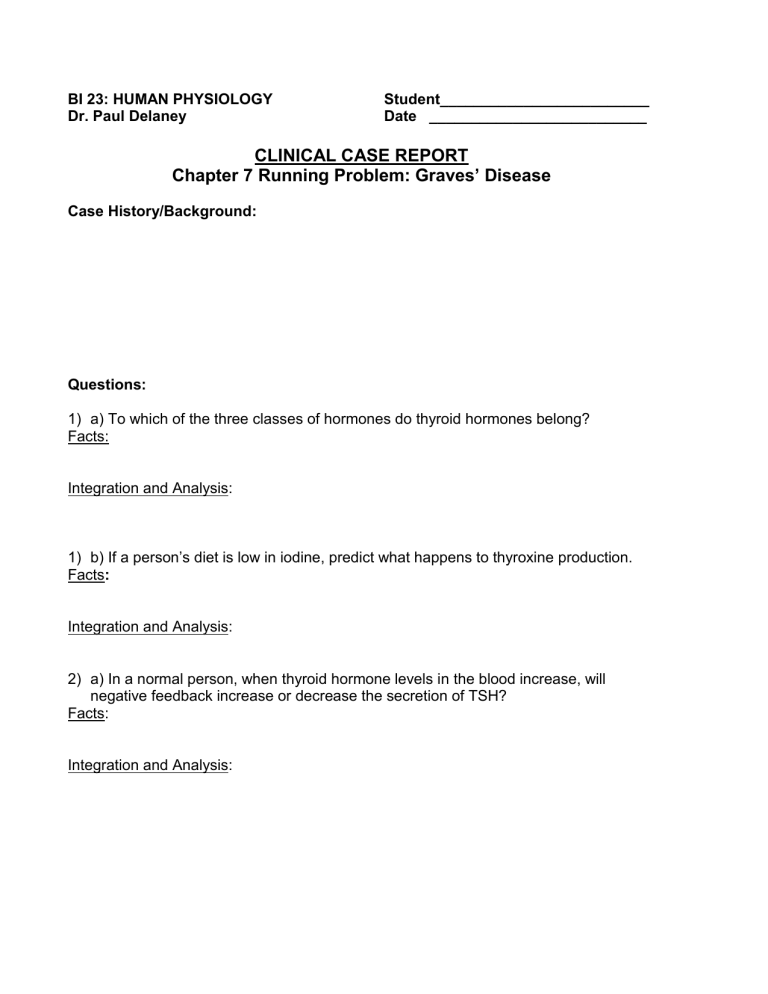
BI 23: HUMAN PHYSIOLOGY Dr. Paul Delaney Student_________________________ Date __________________________ CLINICAL CASE REPORT Chapter 7 Running Problem: Graves’ Disease Case History/Background: Questions: 1) a) To which of the three classes of hormones do thyroid hormones belong? Facts: Integration and Analysis: 1) b) If a person’s diet is low in iodine, predict what happens to thyroxine production. Facts: Integration and Analysis: 2) a) In a normal person, when thyroid hormone levels in the blood increase, will negative feedback increase or decrease the secretion of TSH? Facts: Integration and Analysis: BI-23 Human Physiology Clinical Case 2) b) In a person with a hyperactive gland that is producing too much thyroid hormone, would you expect the level of TSH to be higher or lower than in a normal person? Facts: Integration and Analysis: 3) Why is radioactive iodine (rather than some other radioactive element, such as cobalt) used to destroy thyroid tissue? Facts: Integration and Analysis: 4) If levels of TSH are low and thyroxine levels are high, is Graves’ disease a primary disorder or a secondary disorder (one that arises as a result of a problem with the anterior pituitary or the hypothalamus)? Facts: Integration and Analysis: 5) Antibodies are proteins that bind to the TSH receptor. From that information, what can you conclude about the cellular location of the TSH receptor? Facts: Integration and Analysis: 6) In Graves’ disease, why doesn’t negative feedback shut off thyroid hormone production before it becomes excessive? Facts: Integration and Analysis: 2

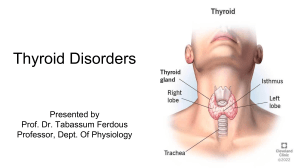
![Anti-TSH antibody [M1A10] ab131725 Product datasheet Overview Product name](http://s2.studylib.net/store/data/011961926_1-244ef1e2c62e8645787745e7b77af046-300x300.png)
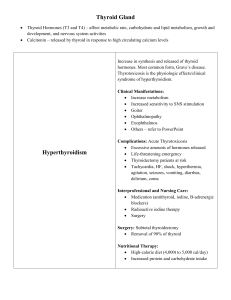
![Anti-TSH antibody [TSH-116] ab767 Product datasheet 1 References Overview](http://s2.studylib.net/store/data/013145164_1-af63fcdcd8aa2e49793222ddace32fb3-300x300.png)
![Anti-TSH antibody [TSB4] ab37202 Product datasheet Overview Product name](http://s2.studylib.net/store/data/013145163_1-1dc5cdb4602bcbf93a9534a1881631f9-300x300.png)
